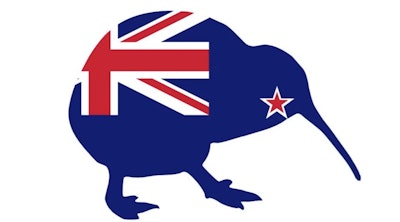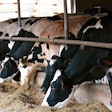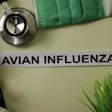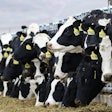
The highly pathogenic avian influenza (HPAI) virus has now been confirmed in New Zealand.
The presence of an H7N6 variant of HPAI, which was confirmed on December 1, is the country’s first instance of HPAI ever on record with the World Organisation for Animal Health (WOAH).
According to WOAH, the virus affected a flock of 220,000 free-range commercial laying hens at a farm in East Otago, in New Zealand’s South Island. Of those, 3,500 hens were reported as dead. Depopulation efforts are underway, and a 10-kilometer buffer zone has been put in place, as well as movement restrictions concerning animals, equipment and feed.
A press release from Biosecurity New Zealand, the affected farm was managed by Mainland Poultry.
“While it is not the H5N1 type circulating among wildlife around the world that has caused concern, we are taking the find seriously," said Stuart Anderson, Biosecurity New Zealand’s deputy director general.
Anderson added that testing showed this strain of the virus is unrelated to the H7 strain that had been identified earlier this year in Australia.
“We believe this case may have happened as part of a spillover event, where laying hens who were foraging outside of the shed were exposed to a low pathogenic virus from wild waterfowl,” said Anderson. “Low pathogenic viruses are present in wild birds here, especially waterfowl like ducks, geese and swans, and the virus can mutate on interaction with chickens.”
Because this strain of HPAI is “not a wildlife-adapted strain,” Anderson said it is unlikely that the virus will spread to mammals.
Mainland Poultry Chief Executive John McKay said the company is committed to working with government agencies and taking quick action to control the situation.
“We have been preparing for an event like this for some time, knowing that low pathogenic avian influenza is already present in New Zealand wild birds,” said McKay. “International experience with avian influenza has shown us this particular strain can be eradicated quickly and successfully.”
New Zealand’s poultry meat exports are thought to be worth in the region of US$112 million annually.
View our continuing coverage of the global avian influenza situation.















